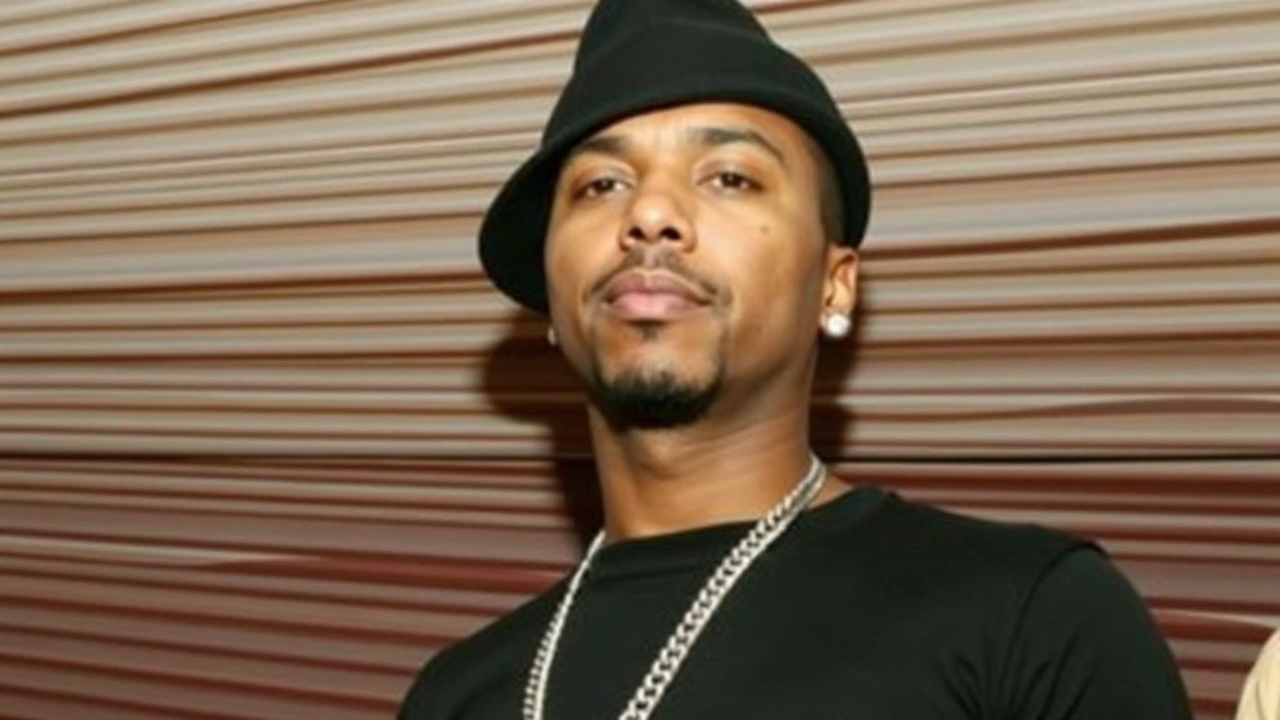Big Meech's Release: A Turning Point in the BMF Saga
Demetrius "Big Meech" Flenory, a name known to many both in the corridors of justice and the streets he once ruled, has moved from the confines of federal imprisonment to a halfway house, signaling a pivotal chapter in his storied life. This transition, reported by TMZ, sheds light on the journey of a man who became a symbol of power, wealth, and criminal enterprise in America. His release is not just a procedural step; for many, it is a poignant reminder of the complex intersection of crime, punishment, and societal reintegration.
The Black Mafia Family (BMF) is more than just a part of Demetrius Flenory's identity. Founded in 1985 alongside his brother, Terry, the BMF evolved into a formidable drug-trafficking and money-laundering enterprise. At its zenith, it stretched across the United States, amassing a staggering $270 million from its operations. The BMF's reach was immense, boasting a network of over 500 members who broadly spread their influence, turning their illicit business into a vast empire.
Demetrius Flenory's Arrest and Sentencing
In 2005, federal authorities succeeded in arresting Demetrius Flenory, a significant triumph in their prolonged battle against organized crime. By 2008, Flenory faced the full force of the law, receiving a 30-year sentence for charges including drug trafficking and money laundering. His conviction, alongside numerous others, effectively dismantled the core of the BMF, marking a substantial win for law enforcement agencies that had been tirelessly pursuing the syndicate.
This arrest, part of a comprehensive crackdown, was instrumental in drawing an end to the widespread operations of the BMF. The organization, known for its lavish lifestyle and exorbitant wealth, had become a symbol of both admiration and fear, drawing curiosity for its seemingly indomitable structure. The significance of Flenory's sentence was evident in its length and the message it sent: even the most powerful criminal enterprises would not evade justice indefinitely.
The Road to Early Release
In 2024, Demetrius experienced a significant reduction in his original sentence, a move that further intrigued observers. Judge authorities decided to cut nearly three years off his time, raising questions and discussions around the criteria and motivations for such decisions. This change in sentence reflects a broader conversation about the criminal justice system, its objectives, and its evolving approach to issues of reform and rehabilitation.
His transfer on Tuesday to a halfway house is part of this complex legal transition, managed by the Bureau of Prisons Miami Residential Reentry Management Office. This step indicates a shift in his status from incarceration toward reintegration into society, his presence symbolizing a broader narrative about crime and its consequences. It's a narrative filled with tension, redemption, and the perpetual question of how society should balance punishment with the potential for change.
The Anticipated Full Release in 2026
With a projected full release date of January 27, 2026, the clock is ticking down to when Demetrius "Big Meech" Flenory might walk entirely free. His potential release marks the culmination of a lengthy legal journey and signals further discussions about his and others' future in the ever-changing landscape of former convicts rebuilding their lives post-incarceration. The road ahead is layered with challenges and opportunities for reflection as society preps to welcome back a man who once lived at the nexus of crime and culture.
Crucially, this development also reopens dialogues around the impact of the BMF on communities and the potential for positive societal contributions by those who were once on the other side of the law. Flenory's transition into a community setting might serve as a litmus test for the effectiveness of rehabilitation and reentry programs within the correctional system, influencing policies and perceptions nationwide.
The Legacy of the Black Mafia Family
The BMF's influence extended far beyond criminal activities, intertwining with popular culture and urban narratives. Its story has been immortalized in books, documentaries, and popular television series, raising visibility and provoking questions about the thin lines between illegal operations and cultural phenomena. This backdrop adds depth to Demetrius Flenory's story, transforming his narrative from merely that of a criminal mastermind to a multifaceted saga within American history.
The tale of the Flenory brothers is one of ambition, risk, and eventual downfall, a story that resonates with themes of power and consequence. As the chapters unfold, the legacy of both the BMF and its founding figures will continue to captivate and challenge society's understanding of crime, punishment, and redemption.
As Demetrius "Big Meech" Flenory steps into this new phase of his life, the world watches with anticipation. What unfolds next remains a story unwritten, one that offers a profound opportunity for learning and, perhaps, a pathway towards meaningful change in the face of past actions.


Joshua Johnston
October 17, 2024 AT 19:26ASHOK BANJARA
October 18, 2024 AT 08:59Ambica Sharma
October 19, 2024 AT 09:36Sahil Kapila
October 20, 2024 AT 09:32Ankit Meshram
October 21, 2024 AT 03:34Shaik Rafi
October 22, 2024 AT 00:13Ashmeet Kaur
October 22, 2024 AT 02:43Nirmal Kumar
October 23, 2024 AT 20:36amrit arora
October 25, 2024 AT 16:16Sharmila Majumdar
October 25, 2024 AT 19:06Hitender Tanwar
October 26, 2024 AT 06:44pritish jain
October 26, 2024 AT 23:49Gowtham Smith
October 27, 2024 AT 12:30Shivateja Telukuntla
October 29, 2024 AT 09:55Ravi Kumar
October 30, 2024 AT 09:09rashmi kothalikar
October 30, 2024 AT 16:07Thomas Rosser
October 31, 2024 AT 16:28Kerry Keane
November 2, 2024 AT 03:53Joshua Johnston
November 2, 2024 AT 07:31